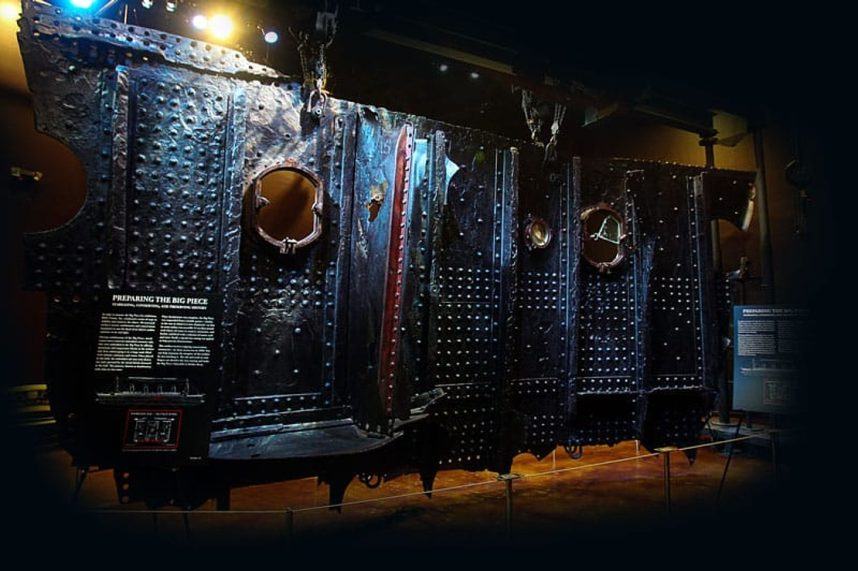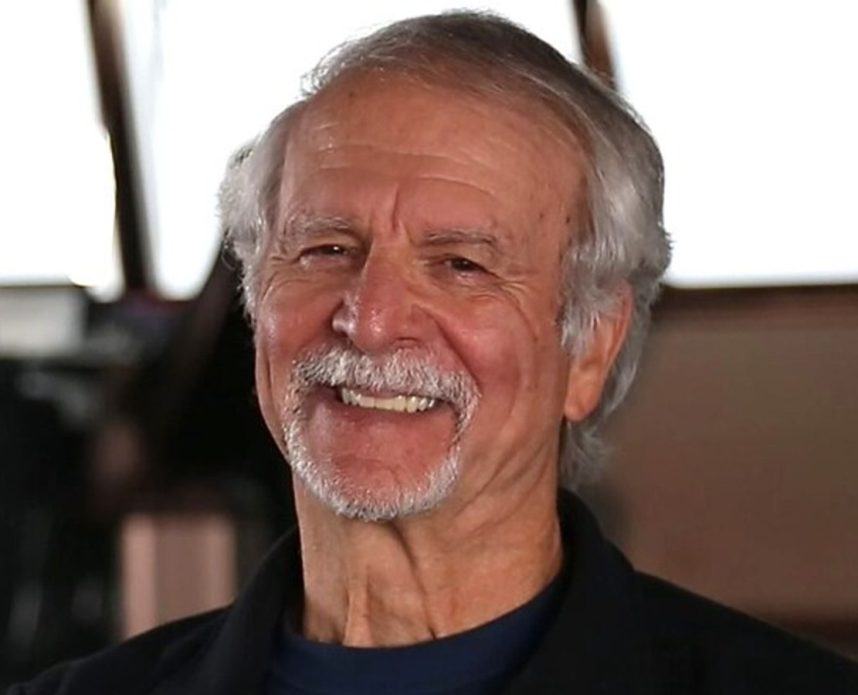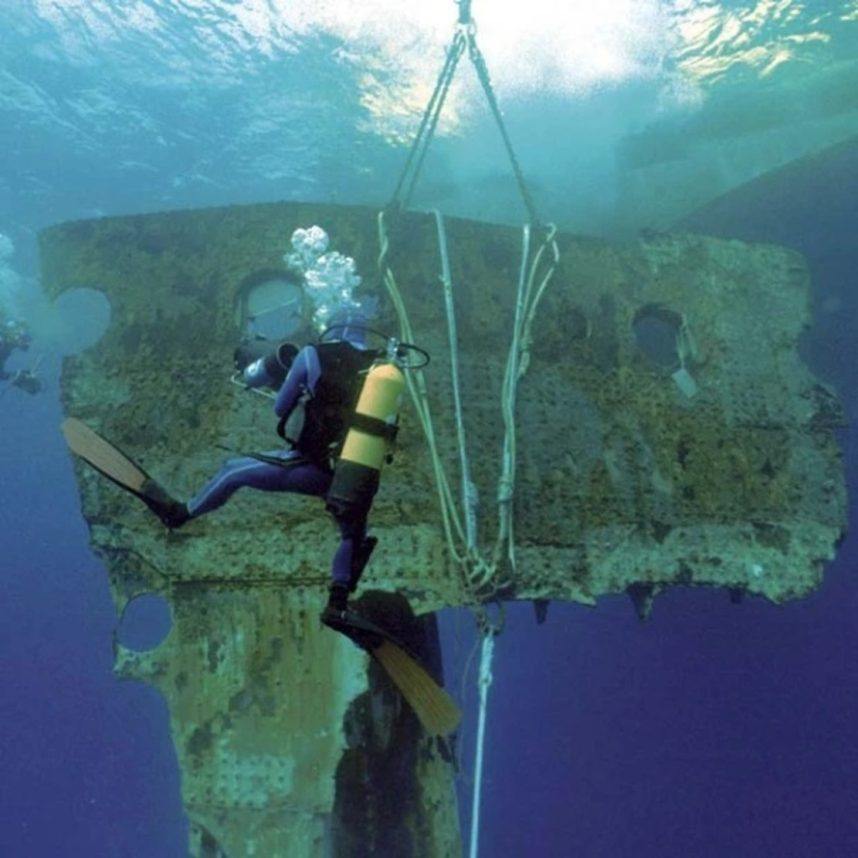French deep sea explorer Paul-Henri Nargeolet — one of five people aboard the Titan submersible who perished in a tragic implosion on Sunday — was responsible for salvaging what is now the main attraction of the Titanic exhibit at the Luxor Hotel & Casino in Las Vegas.

Seen by more than 25 million people, “Titanic: The Artifact Exhibition” features many emotionally evocative artifacts and recreations of life aboard the ill-fated vessel’s maiden voyage. But nothing packs more of gut punch than the big piece.
A 27-foot hunk of the starboard (right) side Titanic’s hull — which once extended from the top of the portholes on D Deck to the top of C Deck — the big piece now hangs in a darkened room that serves as the collection’s finale, its tattered edges and bent plates a solemn reminder of the violence with which Titanic broke up while it sank.

Nargeolet, a retired French navy commander, was the director of underwater research for the Experiential Media Group, producer of Luxor exhibit. And the big piece was his baby to deliver.
The First Try
During a 1996 expedition, the big piece was secured with cables that would later be secured to flotation bags designed to buoy it gently to the surface. Several thousand eyewitnesses stood at the rails of the vessel MV Jim Kilabuk as Nargeolet gave the signal to release the bags from their ballast weights and the piece slowly began to rise.
They erupted in screams and applause when, for the first time since April 14, 1912, this part of the Titanic saw light again.
Two hours later, however, it became apparent that the ship’s winch was insufficient to hoist the 15-ton relic aboard. Nargeolet — whose request for a crane had gone unwisely unheeded — elected to let the big piece “free hang” from the Kilabuk’s stern as it steamed back to Halifax and a different recovery method.
But storm surges from Hurricane Edward forced the team to release the big piece and watch as it dropped back down to the ocean floor a second time.

In August 1998, Nargeolet completed the job using a more capable vessel, the Abeille Support.
Nargeolet led several other expeditions to Titanic, supervising the recovery of at least 5,000 additional artifacts. In addition, he completed 37 dives using submersibles not unlike the one in which he is believed to have died.
The Second Titanic Tragedy
After a frantic, four-day search that gripped the world, US Navy Rear Admiral John Mauger announced at a press conference on Thursday that a remote-operated vehicle discovered the tail cone of the submersible Titan. It was lying in a debris field 1,600 feet from the bow of the Titanic on the sea floor.
“The degree is consistent with the catastrophic loss of the pressure chamber,” Mauger said.
Titan — operated by the Everett, Wash.-based company OceanGate — disappeared Sunday during a mission to survey Titanic’s wreckage, which is 900 nautical miles east of Cape Cod, Mass.
Nargeolet’s family released a statement memorializing him as “an extraordinary father and husband” who “will be remembered as one of the greatest deep-sea explorers in modern history.” The statement added: “When you think of the Titanic and all that is known about the ship today, you will think of Paul-Henri Nargeolet and his legendary work.”
In addition to Nergeolet, those on board included OceanGate CEO Stockton Rush, British billionaire Hamish Harding, and Pakistani businessman Shahzada Dawood and his son, Suleman.
The post Diver Who Perished in Submersible Rescued Crowning Las Vegas Titanic Artifact appeared first on Casino.org.


